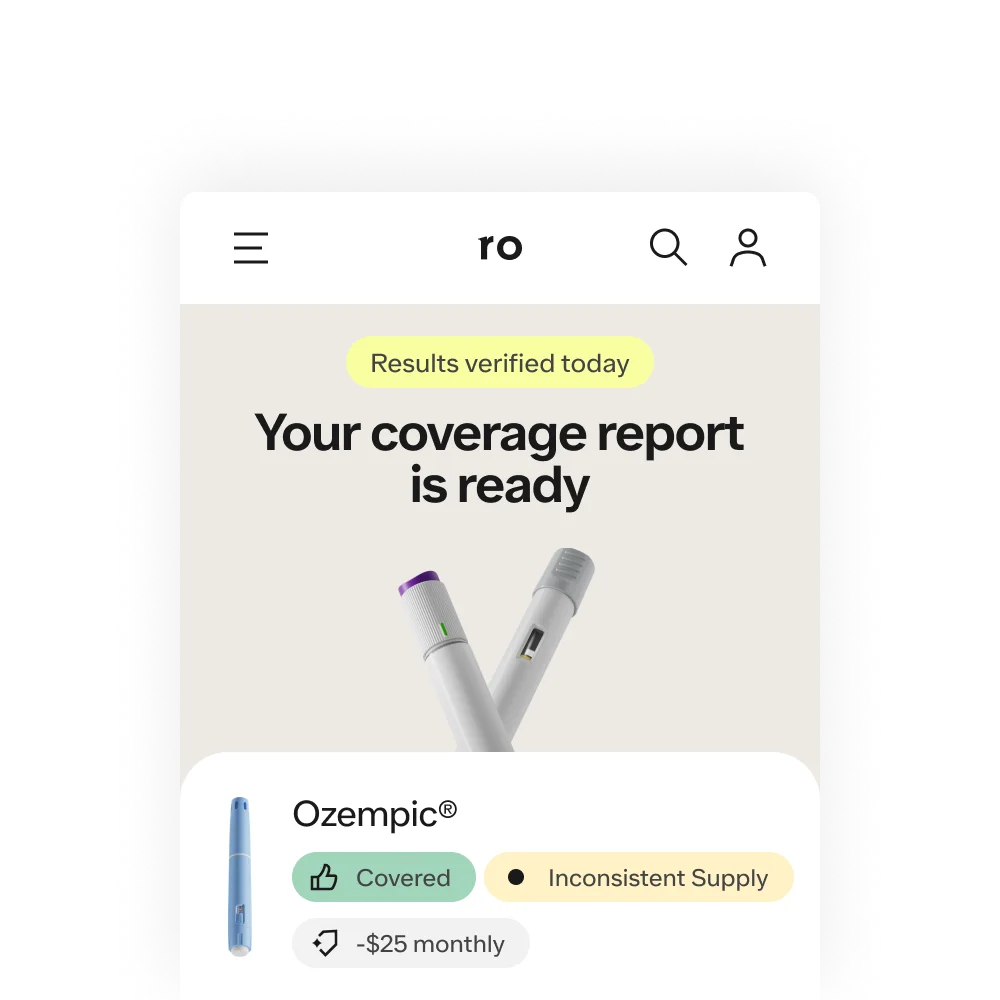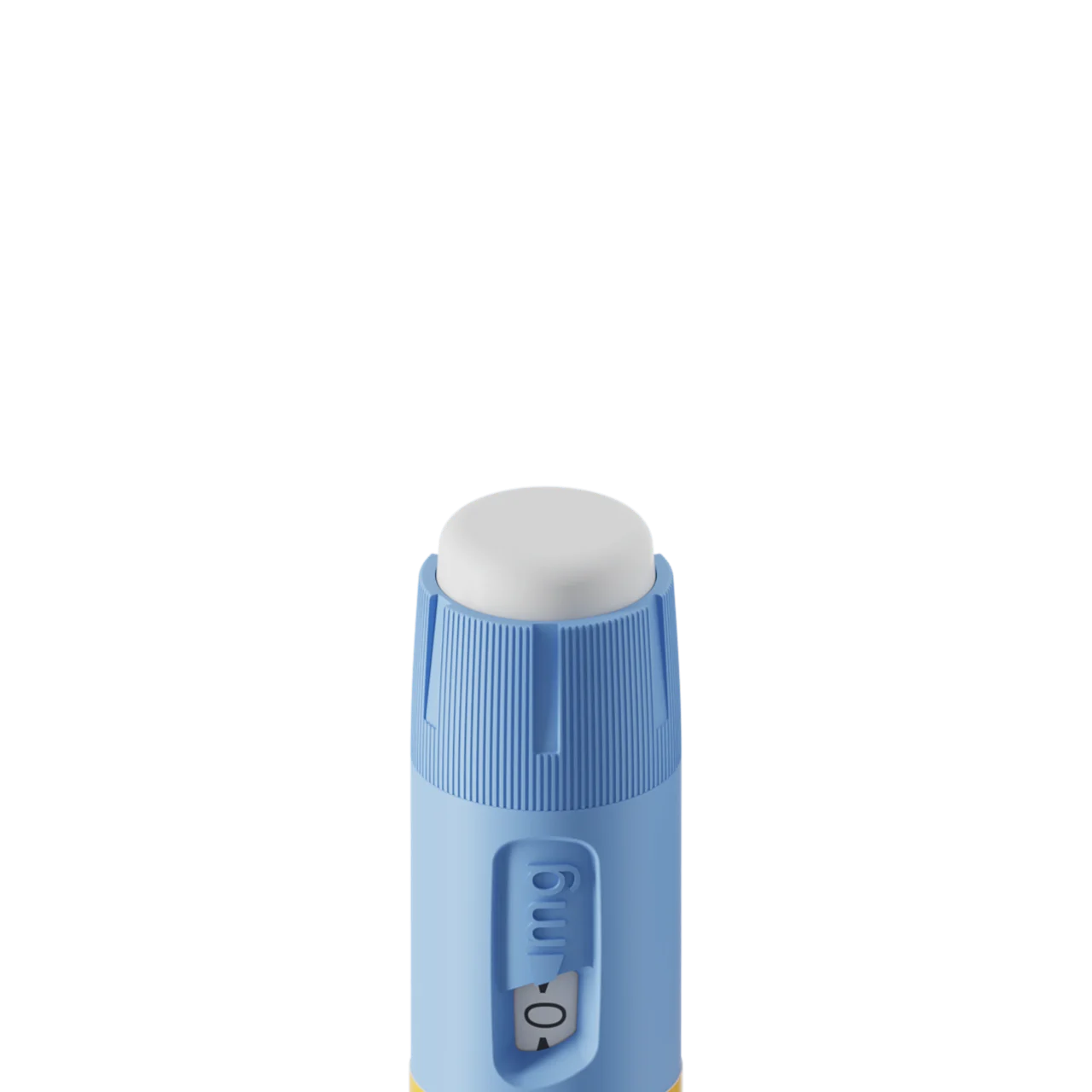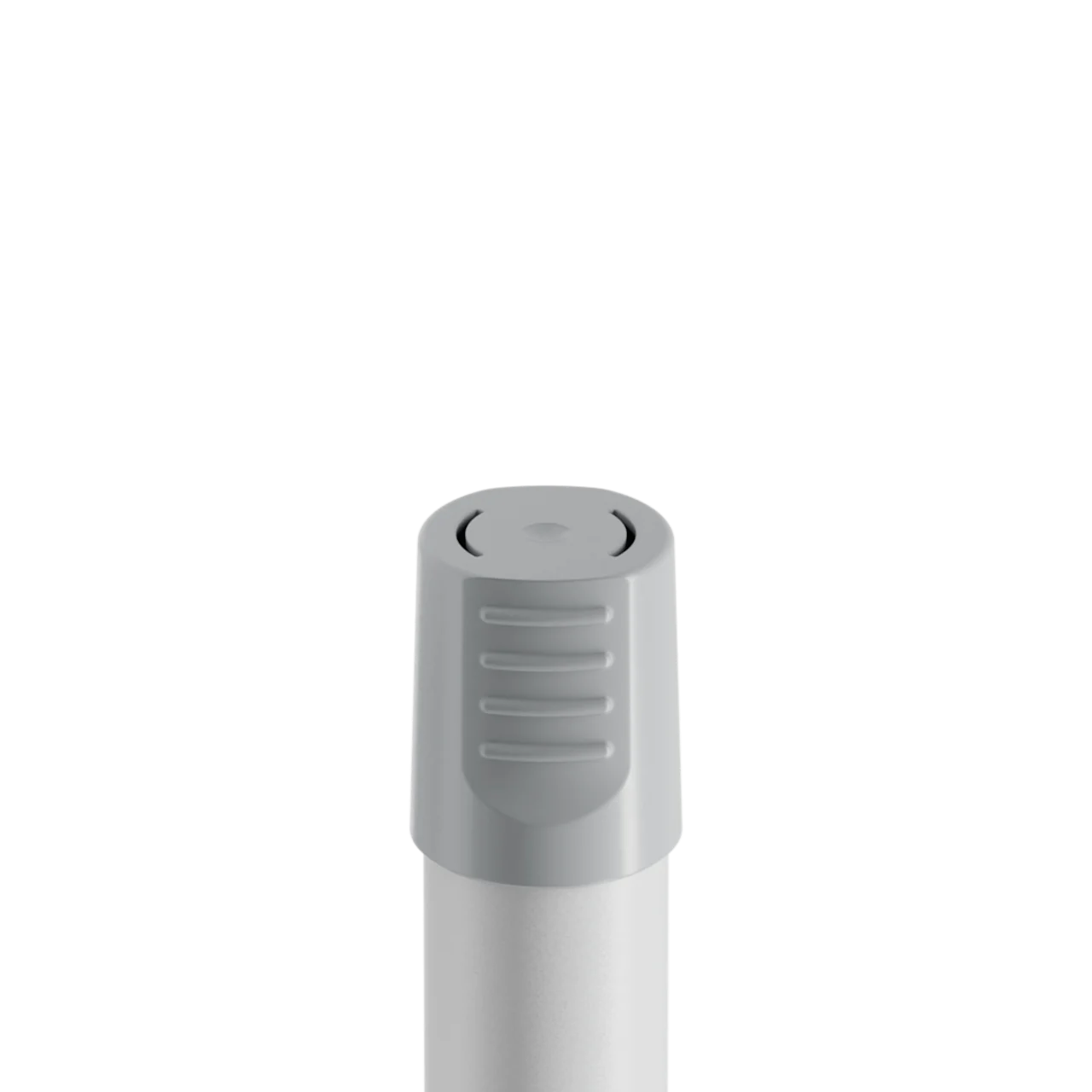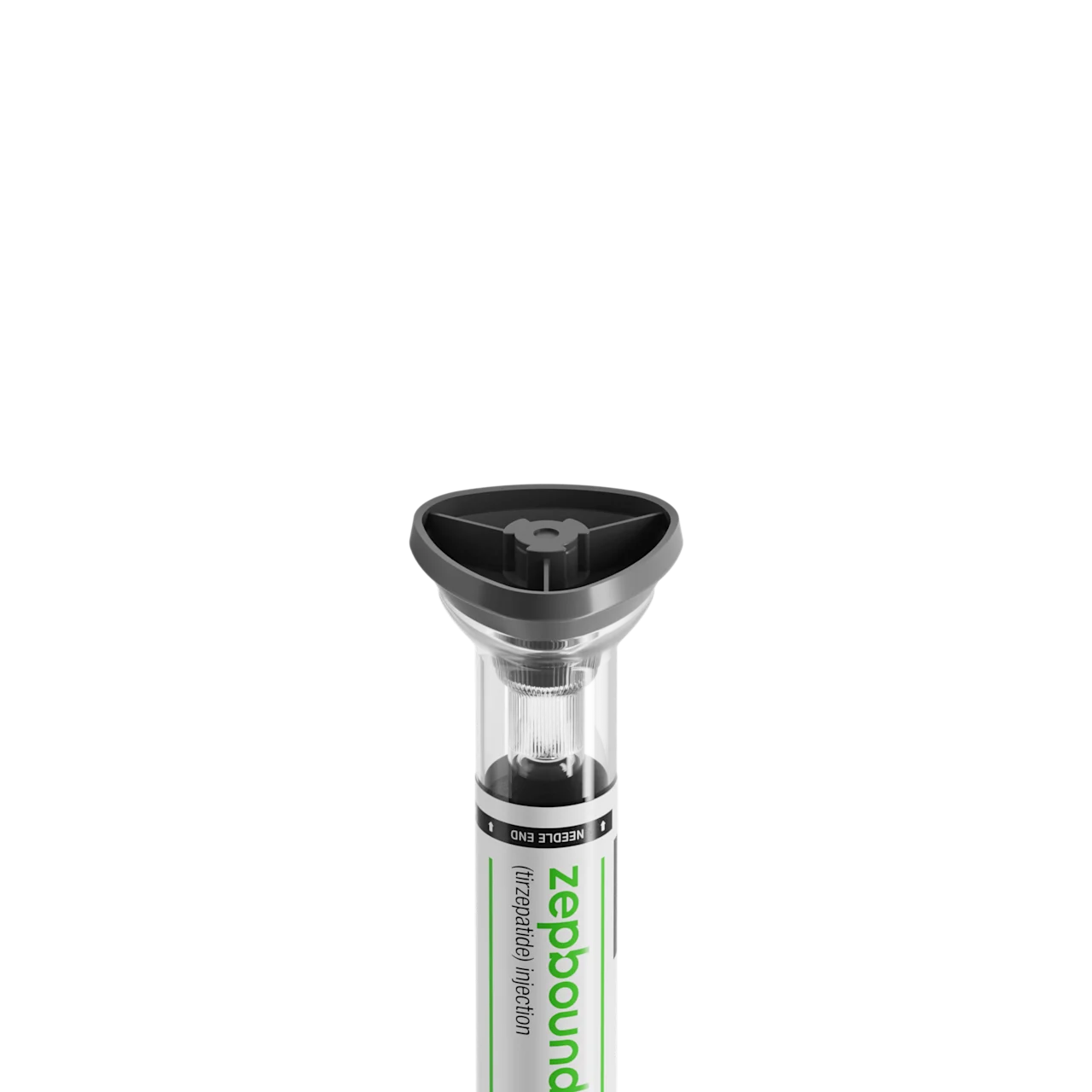Key takeaways
Yes, fatigue is a possible side effect of Wegovy, reported in nearly 11% percent of people in clinical trials.
Possible causes for feeling tired while taking Wegovy include not getting enough calories, changes in blood sugar levels, and dehydration.
Various interventions, like replacing any deficient electrolytes and eating energy-promoting foods, can help you feel more alert on Wegovy.
Here's what we'll cover
Here's what we'll cover
Here's what we'll cover
Key takeaways
Yes, fatigue is a possible side effect of Wegovy, reported in nearly 11% percent of people in clinical trials.
Possible causes for feeling tired while taking Wegovy include not getting enough calories, changes in blood sugar levels, and dehydration.
Various interventions, like replacing any deficient electrolytes and eating energy-promoting foods, can help you feel more alert on Wegovy.
If you’ve been feeling sleepier than usual, you might be wondering: does Wegovy make you tired? The short answer is yes, some people report feeling tired while taking Wegovy. Here’s how common it is and why it can happen.
Does Wegovy make you tired?
Yes, Wegovy can make you tired. In fact, fatigue listed as a potential adverse side effect on the prescribing information (PI) for the drug, and research backs this up.
According to the Wegovy PI, 11% of participants taking the 2.4 mg dose reported fatigue after 68 weeks of treatment during a clinical trial. This was more than double the amount in the placebo group.
Another 68-week clinical trial of adults with overweight or obesity taking 2.4 mg of semaglutide (the active ingredient in Wegovy) found 12.8% of participants reported fatigue during treatment, compared to 7.4% in the placebo group.
A 2022 study looked at real-world outcomes among people with overweight or obesity who took 1.7 mg or 2.4 mg of semaglutide for up to six months. 6% of participants reported fatigue.
The percentages of fatigue vary in each study. It’s important to note that, regardless of the study, fatigue was found to be significantly less common than gastrointestinal (GI) side effects.
Here’s a look at some of the most common side effects listed in the Wegovy PI:
44% reported nausea
30% reported diarrhea
24% reported constipation
In comparison, just 11% of users reported fatigue
You may not notice tiredness as easily as nausea or constipation, especially if you have a busy schedule, says Allison Rhodes, MD, a dual-board certified physician in internal medicine and obesity medicine at The Ohio State University Wexner Medical Center.
But Dr. Rhodes adds that, if you are bothered by fatigue, it's helpful to know that semaglutide could be to blame.
Rx weight loss with Ro
Get access to prescription weight loss medication online
Why does Wegovy make you tired? 6 potential causes
Wegovy can make you tired for many possible reasons, including:
Taking in fewer calories
Changes in your metabolism
Low blood sugar
Increased physical activity while taking the medication
Dehydration
All of these reasons are related to the way Wegovy works in the body. Wegovy is a glucagon-like peptide-1 (GLP-1) receptor agonist, and these medications act like the GLP-1 hormone that’s made in the body. They:
Increase insulin production
Reduce glucagon release when blood sugar is normal or high
Slow down how quickly food through the stomach
These actions cause Wegovy to lower your blood sugar levels, make you feel full for longer, and decrease appetite.
The result? You will likely eat less, take in fewer calories, and might feel more tired as your body adjusts to the drop in energy intake.
Got all that? Good! Now, let’s take a closer look at the potential reasons for Wegovy fatigue.
1. Reduced caloric intake
GLP-1 receptor agonists like Wegovy keep food in the stomach for longer. They also tell your brain you’re less hungry. So you feel full sooner and for longer, and eat less overall.
This is an effective way to lose weight but it can also make you feel depleted and tired. After all, calories are your body’s energy source.
According to Dr. Rhodes, the body needs some time to adjust to a lower caloric intake. She says, "That's true whether you're on Wegovy, another semaglutide medication, or you're just in a calorie deficit in general." Even if your appetite is lower on the medication, aim for a consistent, nutrient-dense eating pattern to ensure you’re still meeting your minimum daily calorie needs.
2. Changes in blood sugar levels
Low blood sugar, known as hypoglycemia, can make you feel tired, and some people will experience this side effect on Wegovy. You’re more at risk for this if you have type 2 diabetes or take another medication — such as insulin — to lower blood sugar.
Semaglutide, the active ingredient in both Wegovy and Ozempic, helps lower blood sugar levels. Unlike Ozempic, Wegovy isn’t approved by the United States Food and Drug Administration (FDA) specifically for diabetes, but it can still influence your blood sugar.
This is why it’s important to tell your healthcare provider exactly what medications you are taking. If you are starting a GLP-1 medication for the first time and are taking other medications that could also lower your blood sugar, your healthcare provider may adjust those medications accordingly.
3. Electrolyte imbalances
Electrolyte imbalances can cause fatigue. When you take Wegovy, this can happen from:
GI side effects such as vomiting, diarrhea, or feeling too nauseous to eat or drink enough
Increasing your activity level or working out more without adequate hydration
A decreased sense of thirst, which can occur with GLP-1 medications
When electrolytes like sodium or potassium are too high or too low, it can disrupt how your body regulates fluids. This imbalance often occurs alongside dehydration, which can lead to fatigue, reduced alertness, and difficulty concentrating.
If you’re concerned about this, consider getting your electrolyte levels checked. If an imbalance is found, you may benefit from electrolyte-containing fluids or supplements — but be sure to discuss this with your healthcare provider first. It’s possible to get too much of certain electrolytes, and levels that are too high can be just as harmful as levels that are too low.
4. Changes to your metabolism
Dr. Rhodes explains that as you lose weight, your metabolism might slow down temporarily while your body gets used to your new, lower weight. Metabolism is the rate at which your body burns calories for energy.
When your metabolic rate decreases, your body starts conserving more energy, which can make you feel more fatigued — especially during active weight loss — until your system adapts.
5. Poor sleep quality
Taking Wegovy can make it more difficult to sleep because of its potential to cause GI side effects, headaches, and low blood sugar, Dr. Rhodes explains. These effects can cause a vicious cycle where poor sleep makes your symptoms worse, and those symptoms in turn make it harder to sleep.
Think of it this way: If your stomach is hurting or if you’re running to the bathroom too often, your body likely isn’t going to get the rest it needs. The more your sleep quality is affected, the more likely you are to have daytime sleepiness and fatigue, Dr. Rhodes says.
But as your body adjusts to the medication, these side effects do tend to get better, according to Dr. Rhodes. When that happens, your sleep may improve, and your energy levels may bounce back.
6. Increased physical activity
Your healthcare provider will likely recommend increasing your physical activity while taking Wegovy. While regular exercise is good for your health and can help you drop pounds, it can also make you more tired in the short term, according to Dr. Rhodes.
This can be especially true if you’re new to working out.
And you might feel even more tired if you’re not fueling your body with the right post-workout foods. If you’re burning more calories through exercise but not eating enough to fuel your workouts or support muscle recovery, your body may struggle to keep up.
Research shows that when you lose weight without getting enough protein, you’re more likely to lose muscle. Losing muscle can make you feel physically weaker, especially during a calorie deficit.
How to improve Wegovy fatigue
Wegovy-related fatigue can get better on its own, but there are some strategies that can get you feeling less blah, sooner. "The earlier you can address issues like fatigue, the shorter the duration of those side effects,” Dr. Rhodes says.
Just make sure you talk with your healthcare provider about your Wegovy side effects, including fatigue.
Move more often
We get it. Exercising while on Wegovy can be challenging when you’re feeling tired. But sometimes, especially if you have chronic fatigue, moving your body as tolerated can help you get back some of that energy. You may also notice a mood boost and better sleep — both of which can increase your focus and alertness.
One study found that exercise and overall physical activity significantly reduced fatigue in adults with chronic conditions. While this hasn’t been specifically studied for Wegovy-related fatigue, the same principles are likely to help.
Here are some tips to get you started:
Start slow. Take short walks or do some gentle yoga to ease into a new exercise routine.
Do a mix of cardiovascular exercises and strength training. Aim to work up to 30 minutes of cardio five days a week, along with two days of strength training a week.
Make sure you’re drinking water before, during, and after a workout. This helps prevent dehydration.
Make sure you’re getting enough nutrition, too. Protein intake is important when you’re losing weight to help preserve muscle and keep your energy up.
Of course, keep in mind to clear all changes to your routine with a healthcare provider before getting started, especially if you have issues with your heart health.
Focus on sleep quality
Sleep is important for battling fatigue while on Wegovy, Dr. Rhodes says. Plus, better sleep can lead to other advantages like improved weight loss outcomes, she adds. Try to get at least 7–9 hours of shut-eye per night.
Practicing good sleep hygiene can help you score ample zzz’s (and, as a result, potentially aid in weight loss, too). Best sleep hygiene practices include:
Having a consistent sleep schedule where you go to bed at the same time every night and get up at the same time every morning
Keeping your bedroom dark, cool, and quiet
Avoiding blue light close to bedtime, including phones and TVs
Practicing relaxation techniques, such as mindful breathing, meditation, and certain types of stretching, to ease tension and help you wind down
Regularly exercising during the day
Eat a balanced diet
Focus on nutrient-dense foods to regain your energy and fight fatigue on Wegovy.
A balanced diet can lead to better blood sugar management. This can keep your energy up throughout the day instead of the blood sugar spikes and crashes that can come when eating simple carbohydrates or sugar.
You can do this by prioritizing:
Lean proteins like eggs, tofu, chicken, or fish
Fruits such as berries, apples, or oranges
Vegetables like leafy greens, broccoli, or brussels sprouts
Healthy fats like avocado, chia seeds, or olive oil
Stay hydrated
Staying hydrated can counteract or prevent feelings of fatigue on Wegovy. Research has found that when people are dehydrated, this can lead to mood changes, poor sleep, and dips in energy levels. Aim for roughly 9–13 cups of fluid daily, though individual needs may vary.
If you’re not a fan of plain H2O, you can try:
Coconut water (includes hydration-helping electrolytes)
Herbal teas
Broth
How long does Wegovy fatigue last?
Wegovy fatigue is usually temporary. How long it lasts in each person depends on different factors, including your dose. Side effects usually worsen right after increasing your Wegovy dose, but as your body adjusts, side effects should improve. The higher the dose, the more chances of side effects, including feeling fatigued.
Some people might feel tired for a few hours after their weekly injection. For others, they can feel fatigued for weeks. Most of the time, these side effects get better the longer you’re on the medication. If you’re experiencing significant fatigue, be sure to discuss your options with your healthcare provider.
Other side effects of Wegovy
In addition to fatigue, Wegovy can cause other side effects that include:
Diarrhea
Vomiting
Abdominal pain
Headache
Indigestion and heartburn
Dizziness
Bloating
Burping
Low blood sugar
Injection site reactions, such as redness, swelling, or itching
These side effects can be more noticeable when first starting the medication, or increasing your dose, says Paunel Vukasinov, MD, internal medicine specialist at Medical Offices of Manhattan in New York.
But if your symptoms are persistent, getting worse, or negatively affecting your life, let your healthcare provider know. They may adjust your dosage, switch your medication, or look into other causes of your fatigue.
Bottom line
Wegovy might make you tired. It’s often temporary, and making changes to your lifestyle can help. Here's a recap on why this may be happening and what you can do:
Wegovy can help with weight loss and weight management by changing your appetite and reducing calorie consumption.
While these effects can help you slim down, they can also be to blame for feeling tired on Wegovy.
Other causes of Wegovy fatigue can include low blood sugar, trouble sleeping, more physical activity, metabolism changes, and dehydration.
Wegovy-related fatigue may lessen over time as your body gets used to the medication.
Some lifestyle changes can help you regain energy and feel less tired, such as focusing on quality sleep and eating a balanced diet.
Frequently asked questions (FAQs)
Is fatigue a common side effect of Wegovy?
Fatigue isn’t one of the most common side effects of Wegovy, but it can happen. About 11% of people taking Wegovy can have fatigue. This can be from not getting enough calories, having low blood sugar, or being dehydrated.
Can Wegovy make you feel weak, dizzy, or sick?
Wegovy commonly causes GI symptoms like nausea or vomiting. Some people might get low blood sugar, which can cause you to feel weak, dizzy, or sick. You might also feel these symptoms if you’re not getting enough calories or hydrating fluids. Be sure to speak to your healthcare provider if you are experiencing these symptoms.
How can you reduce fatigue while on Wegovy?
You can reduce fatigue while on Wegovy by getting enough protein, eating nutritious foods, exercising, and prioritizing sleep. Make sure you’re drinking enough water, too.
Your healthcare provider may also reduce your Wegovy dose or change you to another medication if the fatigue is ongoing and negatively affecting your life.
Is it better to take Wegovy in the morning or at night?
You can take Wegovy anytime, day or night. You just want to make sure you’re taking your dose at the same time each week. Some people find the side effects are less when they take the medication in the evening before bed.
DISCLAIMER
If you have any medical questions or concerns, please talk to your healthcare provider. The articles on Health Guide are underpinned by peer-reviewed research and information drawn from medical societies and governmental agencies. However, they are not a substitute for professional medical advice, diagnosis, or treatment.
Wegovy Important Safety Information: Read more about serious warnings and safety info.
GLP-1 Important Safety Information: Read more about serious warnings and safety info.
Ozempic Important Safety Information: Read more about serious warnings and safety info.
References
Alnawwar, M. A., Alraddadi, M. I., Algethmi, R. A., et al. (2023). The effect of physical activity on sleep quality and sleep disorder: a systematic review. Cureus, 15(8), e43595. doi: 10.7759/cureus.43595. Retrieved from https://pmc.ncbi.nlm.nih.gov/articles/PMC10503965/
Barakou, I., Sakalidis, K. E., Abonie, U. S., et al. (2023). Effectiveness of physical activity interventions on reducing perceived fatigue among adults with chronic conditions: a systematic review and meta-analysis of randomised controlled trials. Scientific Reports, 13(1), 14582. doi: 10.1038/s41598-023-41075-8. Retrieved from https://pmc.ncbi.nlm.nih.gov/articles/PMC10477297/
Centers for Disease Control and Prevention (CDC). (2023). Adult activity: an overview. Retrieved from https://www.cdc.gov/physical-activity-basics/guidelines/adults.html
Dhaliwal, S. K. (2022). Chronic kidney disease. MedlinePlus. Retrieved from https://medlineplus.gov/ency/article/000386.htm
Farhana, A. & Rehman, A. (2023). Metabolic consequences of weight reduction. StatPearls. Retrieved from https://www.ncbi.nlm.nih.gov/books/NBK572145/
Ghusn, W., De la Rosa, A., Sacoto, D., et al. (2022). Weight loss outcomes associated with semaglutide treatment for patients with overweight or obesity. JAMA Network Open, 5(9), e2231982. doi: 10.1001/jamanetworkopen.2022.31982. Retrieved from https://pmc.ncbi.nlm.nih.gov/articles/PMC9486455/
Hartescu, I., Morgan, K., & Stevinson, C. D. (2015). Increased physical activity improves sleep and mood outcomes in inactive people with insomnia: a randomized controlled trial. Journal of Sleep Research, 24(5), 526–534. doi: 10.1111/jsr.12297. Retrieved from https://pubmed.ncbi.nlm.nih.gov/25903450/
Jaime, K. & Mank, V. (2024). Risks associated with excessive weight loss. StatPearls. Retrieved from https://www.ncbi.nlm.nih.gov/books/NBK603752/
Kokura, Y., Ueshima, J., Saino, Y., & Maeda, K. (2024). Enhanced protein intake on maintaining muscle mass, strength, and physical function in adults with overweight/obesity: A systematic review and meta-analysis. Clinical Nutrition ESPEN, 63, 417–426. doi: 10.1016/j.clnesp.2024.06.030. Retrieved from https://pubmed.ncbi.nlm.nih.gov/39002131/
Le, K. D. R., Le, K., & Foo, F. (2024). The impact of glucagon-like peptide 1 receptor agonists on obstructive sleep apnoea: a scoping review. Pharmacy (Basel, Switzerland), 12(1), 11. doi: 10.3390/pharmacy12010011. Retrieved from https://pmc.ncbi.nlm.nih.gov/articles/PMC10801460/
Martin, C. K., Bhapkar, M., Pittas, A. G., et al. (2016). Effect of calorie restriction on mood, quality of life, sleep, and sexual function in healthy nonobese adults: The CALERIE 2 randomized clinical trial. JAMA Internal Medicine, 176(6), 743–752. doi: 10.1001/jamainternmed.2016.1189. Retrieved from https://pmc.ncbi.nlm.nih.gov/articles/PMC4905696/
Medline Plus. (2024). Fluid and Electrolyte Balance. Retrieved from https://medlineplus.gov/fluidandelectrolytebalance.html
Pross, N., Demazières, A., Girard, N., et al. (2012). Influence of progressive fluid restriction on mood and physiological markers of dehydration in women. The British Journal of Nutrition, 109(2), 313–321. doi: 10.1017/S0007114512001080. Retrieved from https://pmc.ncbi.nlm.nih.gov/articles/PMC3553795/
U.S. Food and Drug Administration (FDA). (2025). Highlights of Prescribing Information: Wegovy (semaglutide) injection, for subcutaneous use. Retrieved from https://www.accessdata.fda.gov/drugsatfda_docs/label/2025/215256s026lbl.pdf
Van Cauter, E., Spiegel, K., Tasali, E., & Leproult, R. (2008). Metabolic consequences of sleep and sleep loss. Sleep Medicine, 9 Suppl 1(0 1), S23–S28. doi: 10.1016/S1389-9457(08)70013-3. Retrieved from https://pubmed.ncbi.nlm.nih.gov/18929315/
Wadden, T. A., Bailey, T. S., Billings, L. K., et al. (2021). Effect of subcutaneous semaglutide vs placebo as an adjunct to intensive behavioral therapy on body weight in adults with overweight or obesity: The STEP 3 randomized clinical trial. JAMA, 325(14), 1403–1413. doi: 10.1001/jama.2021.1831. Retrieved from https://pmc.ncbi.nlm.nih.gov/articles/PMC7905697/
Winzeler, B., da Conceição, I., Refardt, J., et al. (2020). Effects of glucagon-like peptide-1 receptor agonists on fluid intake in healthy volunteers. Endocrine, 70(2), 292–298. doi: 10.1007/s12020-020-02394-2. Retrieved from https://link.springer.com/article/10.1007/s12020-020-02394-2



















